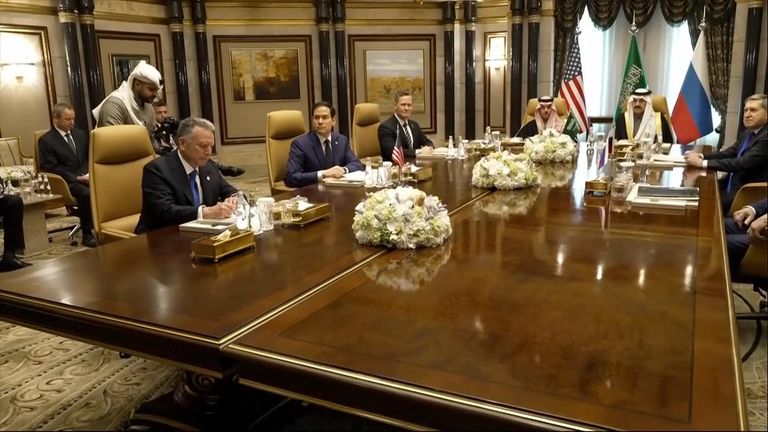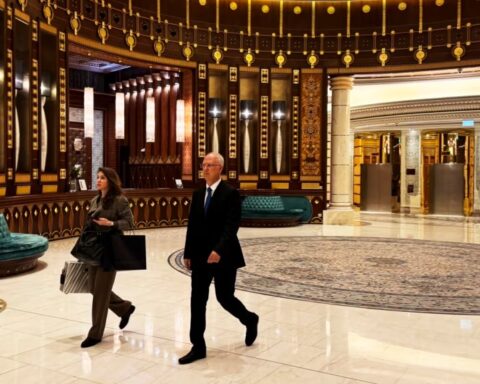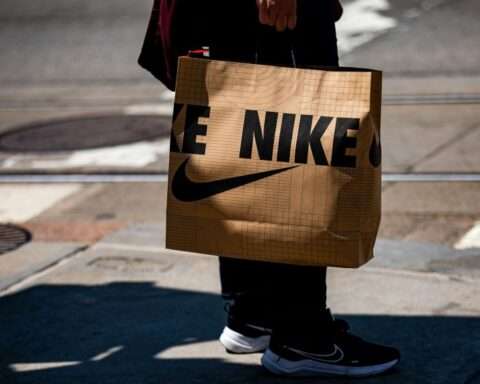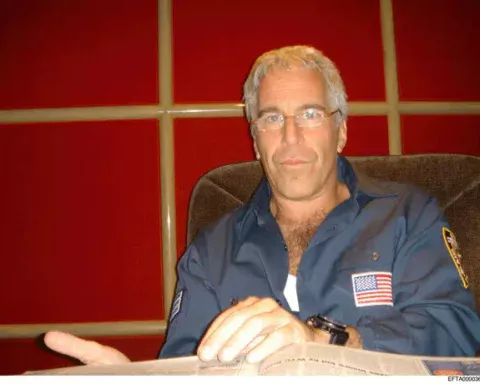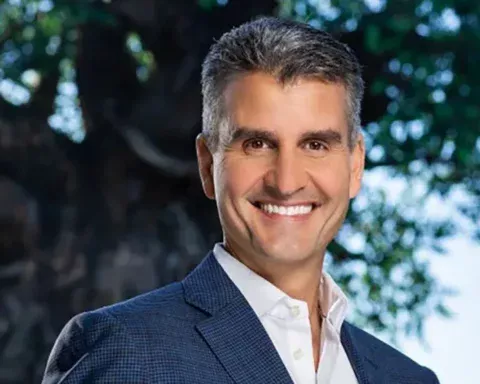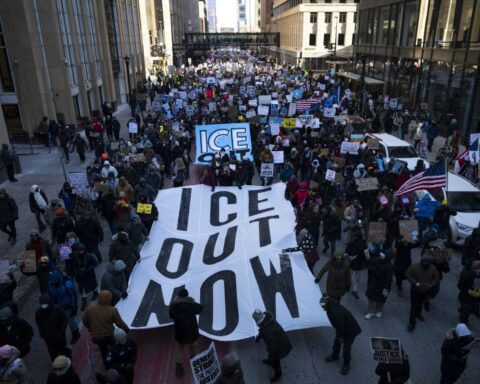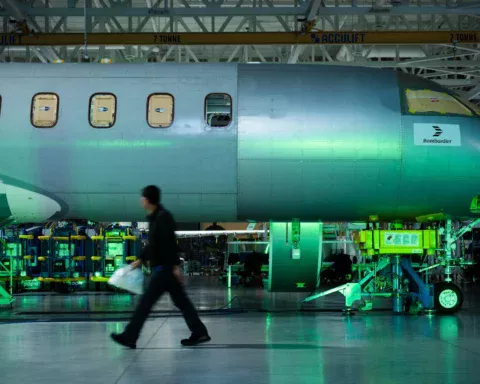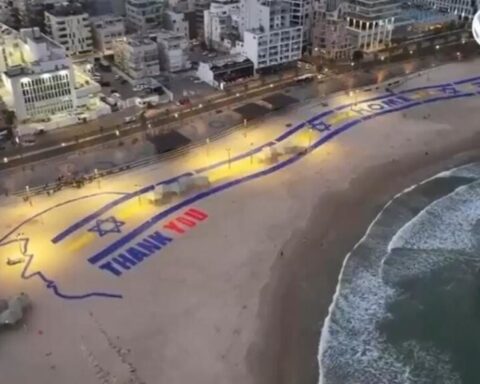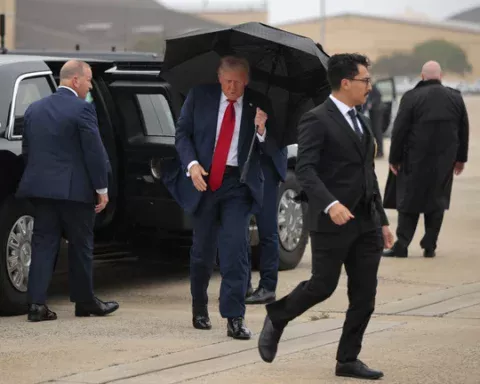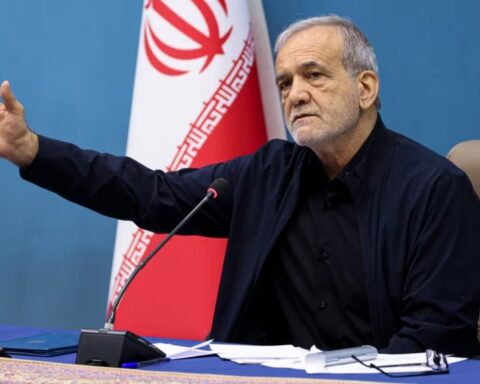US-Russia officials are holding critical talks in Saudi Arabia to address the war in Ukraine, even as Russian drone attacks persist unabated, intensifying the conflict’s toll.
Hosted in Riyadh’s opulent Ritz-Carlton hotel, this high-stakes dialogue brings together U.S. Secretary of State Marco Rubio and Russian Foreign Minister Sergey Lavrov to negotiate a potential ceasefire, against a backdrop of escalating violence that claimed lives in Kyiv just days ago.
Facilitated by Saudi Crown Prince Mohammed bin Salman, the discussions follow separate U.S.-Ukraine meetings, reflecting a diplomatic push by the Trump administration to broker peace. Yet, with drones raining down on Ukrainian cities, the talks underscore the fragile line between negotiation and battlefield realities.
The urgency of these negotiations comes into sharp focus as Ukraine endures relentless Russian assaults. On March 24, 2025, the BBC reported that Russia launched 99 drones overnight, targeting multiple regions, with Ukraine’s air force downing 57—a grim reminder of the war’s daily toll. This follows a deadly weekend strike on Kyiv, where three people, including a five-year-old child, perished, as detailed by CNN. Amid this chaos, U.S. and Russian negotiators convene in Saudi Arabia, a neutral ground increasingly pivotal in global mediation, aiming to hammer out a “ceasefire light” that could halt aerial bombardments while ground fighting persists.
A Diplomatic Dance in the Desert
The Ritz-Carlton’s gilded halls provide an unlikely stage for this geopolitical drama. NBC News noted that the talks, starting Monday, aim to build on a partial truce agreed earlier this month—limiting attacks on energy infrastructure—though both sides accuse each other of violations. Saudi Arabia’s role as host, driven by Crown Prince Mohammed bin Salman’s ambition to cement the kingdom’s diplomatic clout, adds a layer of intrigue. The New York Times reported that journalists were ushered out as discussions began, signaling the sensitivity of the closed-door negotiations.
U.S. Special Envoy Steve Witkoff, a key figure in Trump’s peace push, expressed cautious optimism to Fox News, suggesting Putin might be open to de-escalation. “I don’t see him wanting all of Europe,” Witkoff said, downplaying NATO allies’ fears of broader aggression. Meanwhile, Russia’s delegation, led by Lavrov and including Security Council Secretary Sergei Shoigu, focuses on reviving the 2022 Black Sea grain deal, per Reuters—a priority Kremlin spokesman Dmitry Peskov emphasized to Russian state TV. The talks, however, face skepticism from Ukrainian President Volodymyr Zelensky, who told CNN, “Real peace needs Putin’s order to stop the strikes.”
Escalating Violence Undermines Hope
The timing of the talks starkly contrasts with the battlefield’s ferocity. CNN detailed a weekend drone attack on Kyiv that ignited apartment blocks, leaving residents fleeing amid debris and flames. Ukraine’s air force reported to NBC that 147 drones struck overnight into Monday, with 97 downed—yet the human cost persists. In Donetsk, four died in Russian strikes, per the BBC, while Ukraine retaliated, intercepting 28 Russian drones, as Fox News confirmed. Zelensky, in a social media plea cited by the New York Times, urged, “New pressure on Moscow is needed to end this daily reality.”
This violence complicates the diplomatic effort. The partial ceasefire, brokered after Trump’s calls with Zelensky and Putin, was meant to protect energy sites, but mutual accusations of breaches—Russia alleging Ukrainian strikes on gas stations, per Fox News—threaten its collapse. U.S. negotiators, fresh from Sunday’s “productive” talks with Ukraine’s Rustem Umerov in Riyadh, per Reuters, now face the daunting task of aligning Russian concessions with Ukrainian demands for security guarantees.
US-Russia Officials Hold Ukraine Talks in Saudi as Drone Attacks Continue
The Riyadh discussions represent a rare direct engagement between Washington and Moscow, strained since Russia’s 2022 invasion. Rubio, alongside National Security Adviser Mike Waltz, seeks a broader truce by April 20, per Bloomberg sources cited by NBC—a timeline Peskov called “just the beginning” of “difficult negotiations” on Russian TV. Lavrov’s presence signals Moscow’s seriousness, though his insistence on Black Sea shipping safety hints at broader strategic goals, per the BBC. Saudi mediation, bolstered by its OPEC+ ties with Russia and growing U.S. rapport, offers a neutral pivot, as CNN noted.
Yet, the drone onslaught casts a long shadow. Fox News reported Russia’s Ministry of Defence claiming 59 Ukrainian drones were downed over Rostov and Astrakhan, showing both sides’ aerial tit-for-tat. Zelensky’s plea for “new solutions” to halt the barrage, aired on NBC, reflects Kyiv’s frustration with stalled progress. The talks’ focus on a “ceasefire light”—limiting air and sea attacks—leaves ground warfare untouched, a compromise Rubio hinted at to CNN, saying, “Every day this continues, people die on both sides.”
Ukraine’s Precarious Position
Ukraine’s delegation, absent from the US-Russia talks, presses its case from the sidelines. Umerov, after Sunday’s Riyadh meeting, told Reuters the U.S.-Ukraine dialogue was “focused” on protecting critical infrastructure—a priority after Russia’s energy-targeted strikes. Zelensky, addressing the nation via the BBC, insisted, “Whoever brought this war must take it back,” signaling Kyiv’s demand for Russian accountability. The New York Times noted Ukraine’s hope for a 30-day “silence” to prepare peace terms, though Putin’s commitment remains untested.
European allies watch warily. UK Prime Minister Keir Starmer, per NBC, pushes a “coalition of the willing” to deploy peacekeepers post-ceasefire—an idea Russia rejects, with Shoigu calling it “anti-Russian sentiment” on Russian TV. France’s Emmanuel Macron, speaking to CNN, stressed “credible security guarantees” for Ukraine, wary of Trump’s unilateral approach sidelining NATO. This tension highlights the talks’ stakes: a misstep could fracture Western unity or embolden Moscow.
Trump’s High-Stakes Gamble
The Trump administration drives this diplomatic surge, leveraging Saudi ties to bridge US-Russia divides. Rubio, a Trump loyalist, told Fox News the talks aim to “unlock opportunities” with Russia—geopolitical and economic—echoing Trump’s vision of a grand bargain. Yet, his push for Ukraine to cede mineral rights, per NBC, risks alienating Kyiv, with Zelensky resisting what he calls “unnecessary demands” on CNN. Witkoff’s optimism contrasts with Peskov’s caution, per the BBC, that “no rapid resolution” looms—a divide testing Trump’s deal-making prowess.
Critics, including European leaders cited by the New York Times, fear Trump’s haste could favor Russia, especially as drone attacks signal Putin’s leverage. Posts on X reflect mixed U.S. sentiment—some hail Trump’s mediation, others decry appeasement. The talks’ outcome could redefine his foreign policy legacy, balancing peace with NATO’s cohesion.
Saudi Arabia’s Rising Role
Saudi Arabia’s hosting of these talks cements its diplomatic ascent. The BBC noted Crown Prince Mohammed bin Salman’s directive to mediate, burnishing a reputation tarnished by past controversies. CNN highlighted Riyadh’s balancing act—maintaining OPEC+ ties with Russia while courting U.S. favor—making it a credible broker. The Ritz-Carlton setting, per Fox News, symbolizes this ambition, though its success hinges on bridging US-Russia gaps amid ongoing violence.
The kingdom’s mediation extends beyond Ukraine. NBC News suggests Saudi Arabia eyes a role in future Arctic or Middle East talks, leveraging its neutral stance. Yet, the drone war’s persistence tests this gambit—can diplomacy thrive when bombs fall? The world watches as Riyadh navigates this volatile chessboard.
A Fragile Path Forward
The US-Russia talks in Saudi Arabia teeter between hope and havoc. A ceasefire, even partial, could ease Ukraine’s suffering, but Russian drones underscore the chasm between words and action. Rubio and Lavrov’s dialogue, per CNN, is a “beginning,” not an end—success demands concessions neither side seems ready to make. Zelensky’s plea, echoed by NBC, for “new pressure” on Moscow looms large as the war’s human toll mounts.
For now, the talks are a lifeline in a conflict that’s claimed over 50,000 lives since 2022, per the BBC. Whether they yield peace or merely pause the carnage hinges on trust, a commodity in short supply. This article draws from the BBC, CNN, NBC News, Fox News, The New York Times, and other outlets, weaving a comprehensive tapestry of this pivotal moment.
Focus Keywords: US-Russia Ukraine talks, Saudi Arabia mediation, Russian drone attacks, ceasefire negotiations, Trump peace push, Ukraine conflict 2025, Marco Rubio Sergey Lavrov, Riyadh talks, Zelensky demands, NATO tensions




